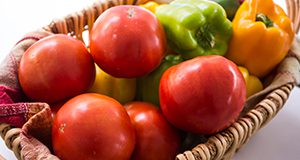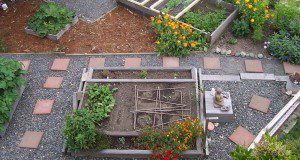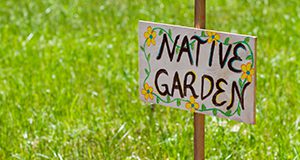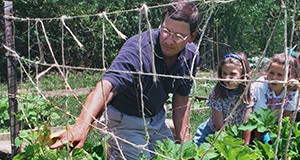Florida's K–12 schools provide a potential opportunity to increase market channel options for small- and mid-sized diversified farms, but processing, storage, and distribution resources are extremely limited for smaller producers. This 9-page document serves as a model and case study with steps for producers and other stakeholders to conduct a feasibility study before forming a cooperative to sell local fruits and vegetables to schools and other institutional food-service outlets. Written by Jonathan Adam Watson, Danielle D. Treadwell, Catherine Campbell, and Ray Bucklin, and published by the UF/IFAS Department of Agricultural and Biological Engineering, March 2021.
https://edis.ifas.ufl.edu/ae555
Tag: Catherine Campbell
How to Establish an Urban Agriculture Ordinance
While the desire to implement urban agriculture projects is growing in popularity, there is little information available to help Extension agents and interested citizens fully understand how to implement urban agriculture in their community. This new 11-page document provides an overview of key information required to establish an urban agriculture ordinance. Case studies from urban agriculture initiatives in Florida provide real-world examples of the required activities, potential challenges, and beneficial partners for implementing these initiatives. Resources related to the case studies and additional urban agriculture resources can be found at the end of the document, so that readers can find further information specific to their interests and needs. Written by Candace A. Spencer, Catherine G. Campbell, Anna Prizzia, and Liz Felter, and published by the UF/IFAS Horticultural Sciences Department.
http://edis.ifas.ufl.edu/hs1327
Key Program Outcomes for K-12 School Gardens Identified Through Expert Consensus
National trends indicate that school gardens are positioned to become fixtures in primary and secondary education. This 4-page document outlines key outcomes identified through expert consensus that can be used by Extension professionals to develop a logic model for the school garden program. Written by Susan Webb, John Diaz, and Catherine Campbell and published by the UF/IFAS Department of Agricultural Education and Communication, September 2018.
http://edis.ifas.ufl.edu/wc312
Understanding the Barriers for School Garden Success: Expert Consensus to Guide Extension Programming
Research has found that youth involvement in school gardens leads to numerous benefits. However, teachers and support organizations must overcome barriers for garden sustainability. This 4-page document discusses barriers for school garden success and how Extension faculty can help education professionals overcome them. Written by Susan Webb, John Diaz, and Catherine Campbell and published by the UF/IFAS Department of Agricultural Education and Communication, August 2018.
http://edis.ifas.ufl.edu/wc315



